
Today, we continue with extracts on Ireland, from my upcoming book Cor Jesu Sacratissimum. [UPDATE: Now Available here!]
Two earlier instalments have appeared: Encountering Catholic Ireland (here) and Charity, Community and Caring in Catholic Ireland (here).
In the most recent of those, I commented on my experience of living in Ireland and being profoundly impressed by the communitarian spirit of its culture.
Yes, having grown up in America and England (and lived in nine countries in all), I have been profoundly moved by this. Many of the Irish little realise it, I think, but the contrast with other cultures is remarkable!
In the book extract that now follows I continue to explore this theme, directly from the last installment:
Book Extract:
Much else bore testimony to the unusual communitarian spirit, which, even now, persists in Ireland.
Thus, I was startled to discover that there had never been a conventional Right versus Left political opposition in Ireland, as it exists elsewhere.
Now, there were two major Irish opposition parties and one of them, Fianna Fáil, might be considered the more conservative. Certainly, it had at least limited resemblances to America’s Republicans, say. In its origins, Fianna Fáil was socially conservative – deeply so – and it has emphasised patriotism rather more and secular values rather less than its opposition.
However, conservative in Ireland had a different meaning, than elsewhere in the Anglosphere. At least, in the past, being conservative in Ireland did not mean being economically right-wing, in the same sense as England or America.
Ireland has changed now. Like all the world, she becomes ever more materialistic. The famed Celtic Tiger arose in the 1990s. Almost overnight, Ireland went from being very poor to very wealthy – a phenomenon we will explore later on [in the book].
For the first time, a small economically right-wing party even emerged for a few years (although it has since died). And, like all of Europe, the main Irish parties are now much closer than they were to the economic Right elsewhere in the world.
Still, in the past, a full-blown capitalist party like Britain’s Tories or American Republicans never existed in Catholic Ireland.
Irish conservatism was not tied to economic liberalism.
Now, the founder of Fianna Fáil, as well as one the founding fathers of the modern Irish Republic was the staunchly Catholic Éamon de Valera. De Valera went to Mass daily. And in 1928, he experienced a vision of Christ in Blackrock college, Dublin, which he would cherish till his last days.
He was, moreover, repeatedly elected leader in Ireland over many years. De Valera, then, might be seen as the leading conservative in Ireland for two generations at least. And here is how this leading conservative addressed the Irish nation on Saint Patrick’s Day, 1943:
The Ireland which we have dreamed of would be the home of a people who valued material wealth only as a basis of right living, of a people who were satisfied with frugal comfort and devoted their leisure to things of the spirit; a land whose countryside would be bright with cosy homesteads, whose fields and villages would be joyous with the sounds of industry … whose firesides would be forums for the wisdom of serene old age. It would, in a word, be a home of a people living the life that God desires that men should live [Italics mine].
Now, this short speech is not offered to enter into controversies surrounding de Valera or Irish politics. This is not a book about Irish politics in all its paradoxes and contradictions. And I will not deny that Ireland has politicians who fall short of their rhetoric, like everywhere else …
Still, dear Reader, I invite you to reflect a moment on the electoral prospects for conservative politicians elsewhere who called for: frugality; ‘things of the spirit’; forums of serene wisdom and money ‘only as a basis’ for … the ‘life that God desires that men should live’.
Do not phrases like ‘political suicide’ spring effortlessly to mind? Yet Éamon de Valera was elected repeatedly.
Yes, until very recently, Ireland travelled a very different road than the rest of the Anglosphere. Its extraordinary religiosity persisted even into the late Eighties – and can be felt in the rural West, even now.
Now, cynics may mutter: ‘Ah, nothing but the result of social pressure and conformity.’ Certainly, conformist pressure forms part of every society. The young today are pressured to conform to the strictures of consumer capitalism. And if the Anglosphere pressures its youth to become yuppies – Young Upward Professionals, Ireland once produced YPCs – young Poor Catholics – who often emigrated overseas in search of better conditions.
I invoke these poverty-stricken YPCs, abandoning their homeland, precisely because I do not claim that Catholic Ireland was perfect. De Valera’s Ireland was poor – very poor by Western standards.
But neither will I sing in unison with dismissive materialists, who suggest there was nothing more to Catholic Ireland than social conditioning.
No, I will not be party to naïve reductionists, who mutter darkly about a society controlled by Catholic priests – without the slightest notion their own society might now be controlled by Corporate ‘priests’. (This is to say ‘priests’ imparting the new philosophy of hyper-individualist consumerism, who are the sine qua non of modern society.)
It is futile to deny social conformity in any society. But only Secular Materialism could deny that something else was operative in Catholic Ireland.
Now, we made mention, earlier, of an Irishman, who described the Church of his youth as ‘otherworldly’. And an elderly Irish lady once described to me the Latin Mass of old, before the last Vatican council. She recalled how the priest now turned to face the congregation.
Pained, she told me: ‘It used to be that at Mass, I was looking into the face of God. But then the priest turned round and I had to look into the face of a man …’
I might add that this was not someone I met in ‘Latin Mass circles’, but only in everyday Irish life. This gracious woman had only been to the Novus Ordo for decades now, but nevertheless, she never forgot the palpable sense of transcendence she felt in the old Mass.
Likewise, she never forgot rural Ireland as it had been in her youth. There was no television in the evenings and, as night drew near, she went from neighbour’s hearth to neighbour’s hearth, where the Rosary was prayed and in every home she was welcomed to join in prayer …
Such things cannot be explained away by social conformity. Yes, something else is operating here – something both wholesome and holy.
Can we credit these Irish people for their experience and not ridicule them with insults like ‘priest-ridden?’ Can we imagine that this elderly Irish lady experienced something real, before the Latin Mass stopped and the priests turned round and spoke in English?
Are we so smug as to be sure that Catholic Ireland was nothing but gullible and sheep-like? Or dare we imagine that in Ireland, something of Christendom was preserved – unlike anywhere else in the Anglosphere?
Dare we open ourselves to the idea that its pious ‘otherworldly’ Sacramental culture inspired both fidelity and love?
Indeed, there are many Irish Catholics who speak with profound affection for the sacramentally charged world of their youth, a world wherein trust was far more widespread and community and piety prevailed.
Are we obliged to believe their cherished memories simply stems from Irish naïvete – that they were simple stooges to the priests?
Might not the reverse be true: It is we who are the naïve stooges of materialistic media domination?
*****
Further extracts on Catholic Ireland from my book will follow in time.
Foreword for Monarchy by Roger Buck
Buying Books at Amazon Through These Links Gives Us a Commission. This Supports Our Apostolate. Thank You if You Can Help Us Like This!





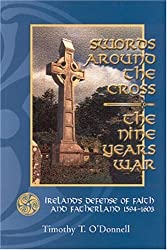
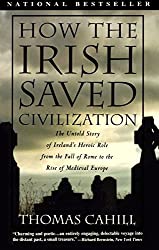
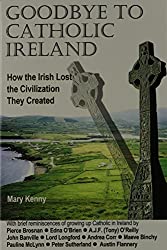
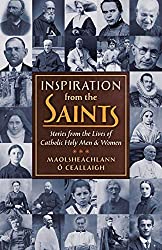
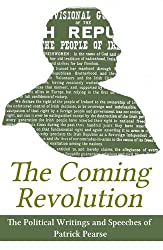
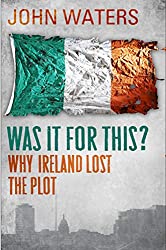
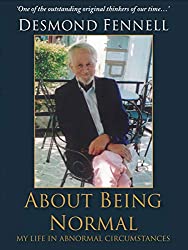
Comments
comments are currently closed
5 responses to “The Catholic Ireland of Éamon de Valera”
[…] one of the founding fathers of the modern Irish Republic was the staunchly Catholic Eamon de Valera. The political party he founded has dominated Irish politics from the beginning. He himself was […]
[…] pumped into this cause by American sources, above all. Today, more than ever before, I understand Eamon de Valera’s dream of restoring Gaelic […]
[…] I am haunted, haunted by the ghosts of Patrick Pearse and Éamon de Valera. […]
[…] too. Amongst these is the deluge of Anglo-American media that, not so long ago, Patrick Pearse, Éamon de Valera and many other pioneers of Irish independence were so gravely concerned […]
[…] Éamon de Valera hat ein Erbe hinterlassen, wie es einzigartig in Europa war. Im Artikel „Das katholische Irland von Éamon de Valera“ wird wiedergegeben, was eine ältere irische Dame im Buch „Cor Jesu Sacratissimum“ über die […]